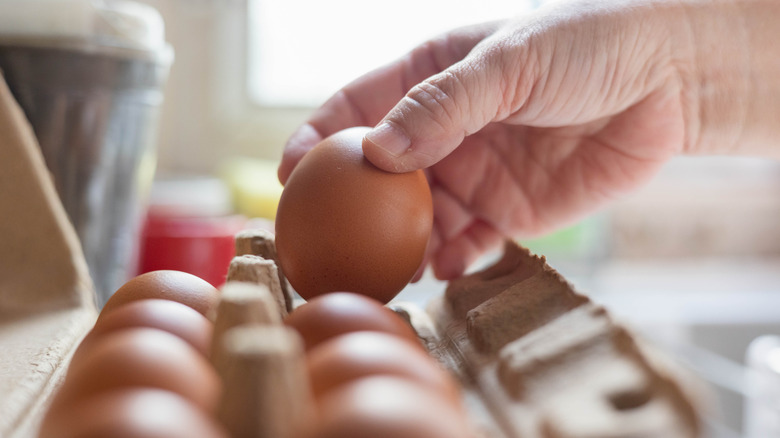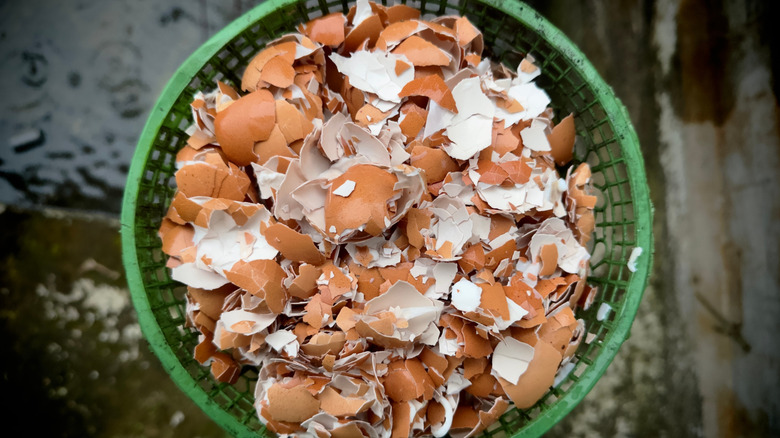The Truth About Raw Egg Fertilizer Before Trying It Yourself
When it comes to growing and maintaining a successful home garden, you likely know that it takes more than just water and sunshine to make your plants thrive. Fertilizer is an important addition to garden soil that can arguably make or break your garden. As such, you should know how to choose the perfect fertilizer for flowers and other plants in your yard. Tried-and-true commercial fertilizers are viable options, but many gardeners are also experimenting with food and pantry items. Some people tout the use of raw eggs as a fertilizer for their plants, but there are some serious risks you ought to consider before you get cracking with this method in your own garden.
Eggs are considered nutrient-dense foods for humans, so it might seem strange why someone might use them for gardening purposes. It just so happens that eggs contain some of the same nutrients you might find in commercial fertilizer products, such as magnesium, potassium, and phosphorus. Similar to the reasons why some people use Epsom salt in gardens, there's been a growing interest in adding raw eggs for the sake of adding extra nutrients to garden soil. While it sounds good in theory, raw egg fertilizer is arguably more of a trend than a renowned gardening technique.
The downsides to using raw eggs as a plant fertilizer
Despite the additional nutrients eggs might provide to your garden plants, the downsides of this method may outweigh any purported benefits. For one, adding raw eggs to you garden can pose health risks to children, pets, and anyone else that contacts the substance. The primary concern is salmonella bacteria, which can lead to food poisoning. Another problem is that the eggs can attract unwanted guests to your yard, such as mice, rats, and raccoons. Finally, you also need to ask yourself if the smell of raw egg is really something you want to have in your home garden. These are all similar reasons why you should think twice before cracking an egg into your tomato plants (or any other plant in your garden for that matter).
While eggs might provide your plants with important nutrients while in a pinch, you are better off using regular fertilizer. Doing so helps to ensure your plants get the specific nutrients that they need. For example, while high-nitrogen content in all-purpose fertilizers can help a variety of plants, some plants need more phosphorus or potassium.
Alternatively, you can use egg shells as part of compost to add to your plants, which can add some calcium to the soil. For the best results, allow the egg shells to completely dry before crushing them. It's always a good rule of thumb to test the soil in your garden to see if it truly is deficient in any nutrients before simply adding in products like eggs.

